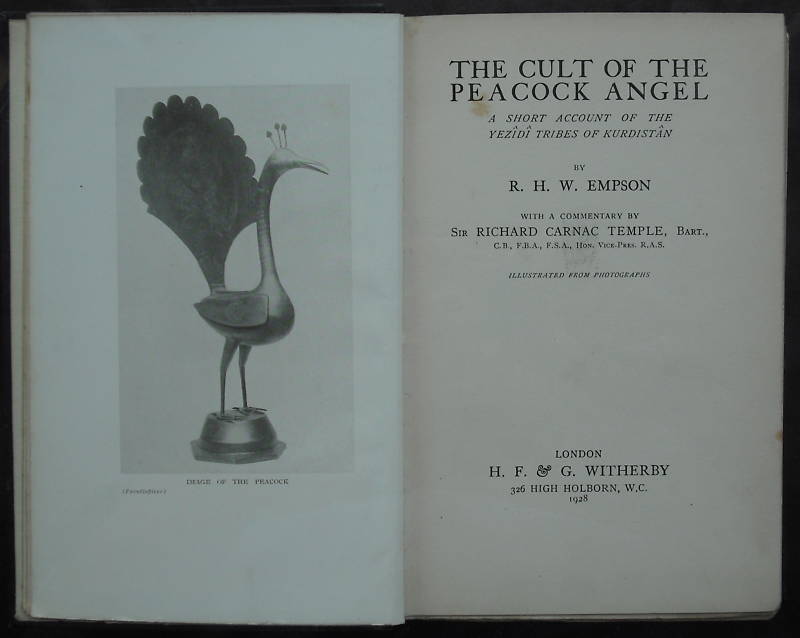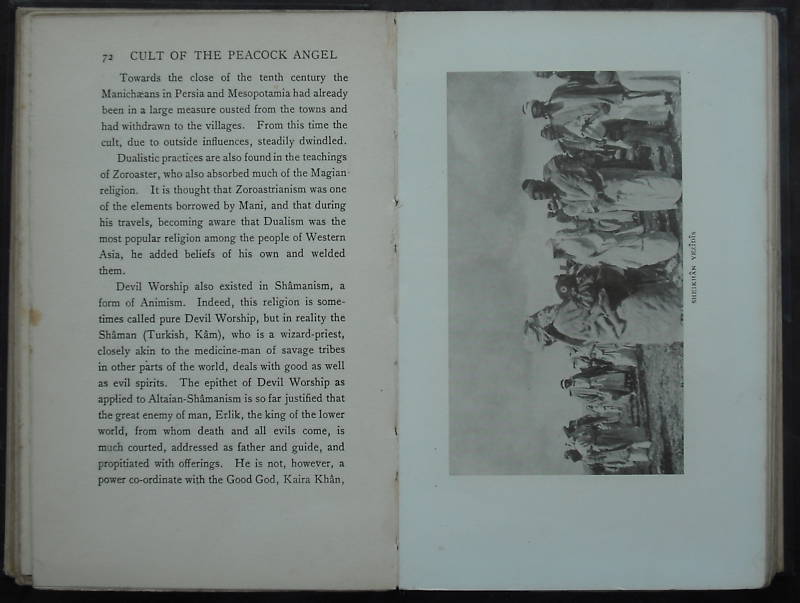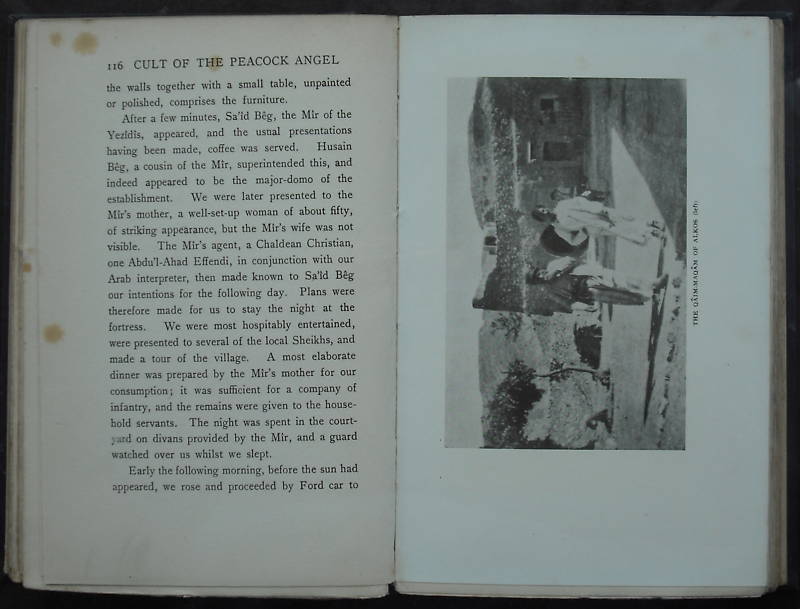
THE CULT OF
THE PEACOCK ANGEL
- A Short Account of the Yezidi Tribes of Kurdistan

by R. H. W. Empson
H. F. & G. Witherby,
London, 1928

About the Book
This is one of the scarcest books in English on the Yezidi Kurds.
The Yazidi Kurds (also Yezidi, Kurdish: Êzdî) are members of a Kurdish religion with ancient Indo-European roots.
They are primarily Kurds and Kurdish-speaking people living mainly in the Mosul region of northern Iraq, with additional communities in Transcaucasia, Armenia, Ahouth East Anatolia and Syria. The Yazidi communities in the Midddle East have been in decline since the 1990s with many members emigrating to Europe, especially to Germany.
Their religion, Yazidism, is a branch of Yazdânism, and is seen as a highly syncretic complex of local Kurdish beliefs and Islamic Sufi doctrine introduced to the area by Sheikh Adi ibn Musafir in the 12th century. The Yazidi believe in God as creator of the world, which he placed under the care of seven holy beings or angels, the chief of whom is Melek Taous, the Peacock Angel.
The bulk of the Yazidi population lives in Southern Kurdistan (Northern Iraq), where they make up an important Iraqi minority community. Estimates of the size of Yazidis vary significantly, between 270,000 and 500,000. They are particularly concentrated in Southern Kurdistan, in the area around Mosul.
The two biggest communities are in Shekhan, northeast of Mosul, and in Sinjar, at the Syrian border 80 kilometers west of Mosul. During the 20th century the Shekhan community struggled for dominance with the more conservative Sinjar community.
The demographic profile is likely to have changed considerably since during the Saddam Hussein's Baath regime.








